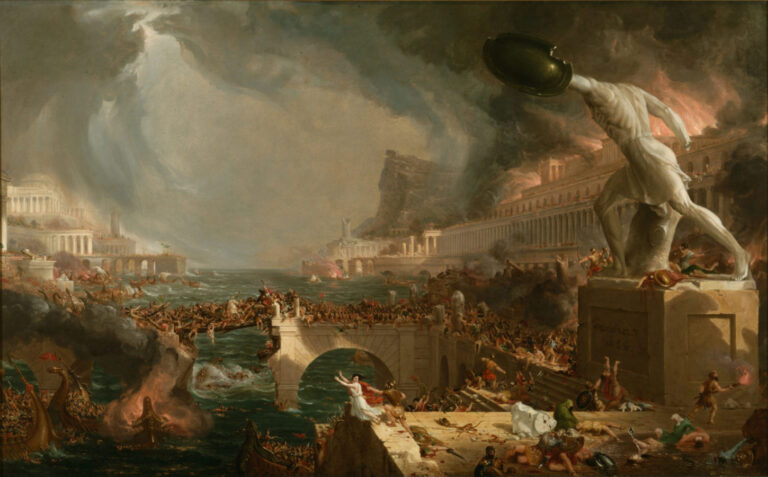In the pantheon of Roman gods, Mars stands as one of the most powerful and deeply respected. He was not only the god of war, but also the father of the Roman people. To understand Mars is to understand Rome itself—its values, its military spirit, and its unshakable belief in destiny and power.
While Mars was based on the Greek god Ares, the Romans made him much more than just a violent war god. He became a protector of the state, a symbol of Roman virtue, and even a divine ancestor of Rome’s founders.
Origins: From Greek Ares to Roman Mars
Mars is often equated with the Greek god Ares, but there are key differences:
Ares was viewed by the Greeks as dangerous, chaotic, and disliked by the other gods.
Mars, on the other hand, was respected, honored, and admired by Romans.
To the Romans, Mars represented just war, military honor, discipline, and masculine strength—not just bloodshed.
Mars likely developed from early Italic warrior gods and had strong agricultural roots before being fully linked to war.
Mars in Roman Mythology
The Father of Rome
Mars is best known in Roman mythology as the father of Romulus and Remus, the legendary twin brothers who founded Rome.
According to the myth:
Mars seduced Rhea Silvia, a Vestal Virgin.
She gave birth to Romulus and Remus, who were abandoned and raised by a she-wolf.
Romulus would go on to found the city of Rome, making Mars the divine father of the Roman people.
This story gave Mars a special place in Roman identity: not only the god of war, but the origin of Roman greatness.

Mars the Warrior: God of Military Power
Mars was the patron of soldiers and protector of the Roman legions. He was invoked before every major military campaign.
Romans believed:
Mars could bless them with victory, protect them from harm, and punish enemies.
Soldiers made sacrifices to Mars before battle and thanked him afterward.
His most important attributes included:
Armor: Mars was always depicted in full military gear—helmet, shield, and spear.
Weapons: Often seen holding a spear or sword, ready for battle.
Animals: Sacred animals included the wolf (like his sons’ legend) and the woodpecker.
Mars symbolized courage, strength, and military discipline—core Roman virtues.

Mars the Protector of Fields
Before he became a full war god, Mars was also connected to agriculture:
Early Roman prayers to Mars asked for protection of crops and animals.
Mars was seen as a guardian of fertility and growth, especially in times of peace.
Even as he became more warlike, this connection stayed important. Peace and war were not opposites to the Romans—they were part of a cycle that Mars controlled.

Temples, Festivals, and Worship
Mars had several major temples and shrines in Rome and across the empire.
🏛️ Temples
The Temple of Mars Ultor (“Mars the Avenger”) was built by Augustus in the Forum of Augustus.
It honored Mars after Augustus avenged the assassination of Julius Caesar.
The Campus Martius (“Field of Mars”) was an open area where Roman soldiers trained and military parades were held.
Originally dedicated to agricultural Mars, it became central to Rome’s military identity.

Festivals
Several important festivals honored Mars:
March (Martius) was named after Mars, marking the start of the Roman military campaign season.
Equirria (Feb 27 & March 14): Chariot races in honor of Mars.
Armilustrium (Oct 19): Purification of weapons before winter, marking the end of the military season.
October Horse (Oct 15): A horse sacrifice to Mars, one of the oldest and most mysterious Roman rites.
Priests called Salii (“leaping priests”) performed ritual dances and chants in his honor, wearing ancient armor and carrying sacred shields (ancilia).
Mars and the Emperors
Mars played a major role in Imperial ideology:
Emperors often claimed to be sons of Mars or under his protection.
Coins, statues, and public ceremonies often depicted Mars alongside emperors, especially those with military victories.
For example:
Augustus connected Mars with order and vengeance after the civil wars.
Trajan and Marcus Aurelius portrayed Mars as a partner in imperial conquest.
Mars wasn’t just a god—he was a political symbol.

Mars and Venus: Love and War
In mythology, Mars had a famous relationship with Venus, the goddess of love. Their union symbolized the balance between love and war, passion and strength.
Their son, Cupid, was said to represent both the power of desire and the wildness of battle—showing how even the fiercest god had a soft side.
This story also reflected the Roman ideal that power must be balanced with beauty, and that war must serve peace.

Legacy: Mars After the Empire
Even after the fall of Rome, Mars remained important:
The planet Mars was named after him due to its red color—symbolizing blood and war.
The month of March still bears his name.
Mars inspired countless stories, symbols, and military traditions throughout European history.
In modern times, Mars still appears in art, literature, and even science fiction—as a symbol of strength, conflict, and cosmic power.

Conclusion: Mars, More Than a War God
Mars was not just a destroyer—he was a guardian, father, and founder. To the Romans, he represented the heart of their identity: strong, disciplined, and unstoppable in battle, yet deeply tied to family, land, and destiny.
By honoring Mars, the Romans honored their own values—valor, order, and the duty to defend and expand Rome. Understanding Mars is key to understanding why Rome saw itself as destined to rule the world.
